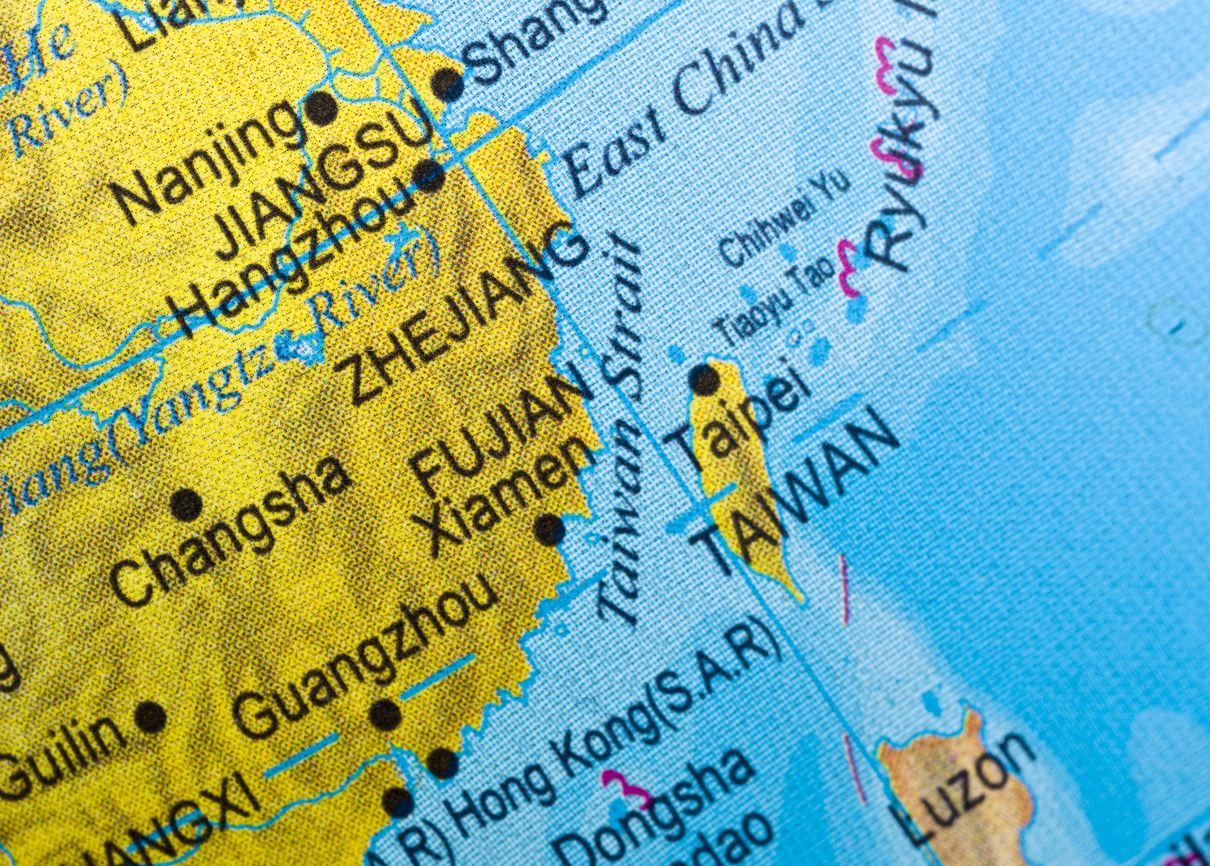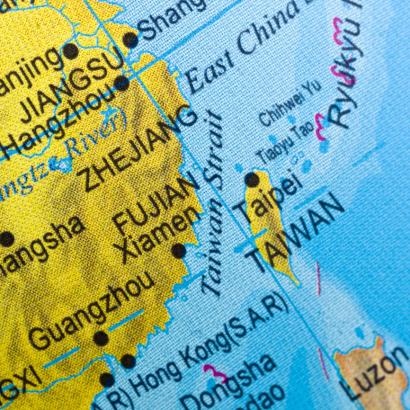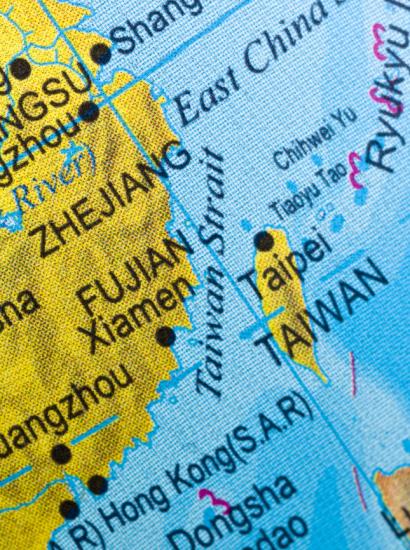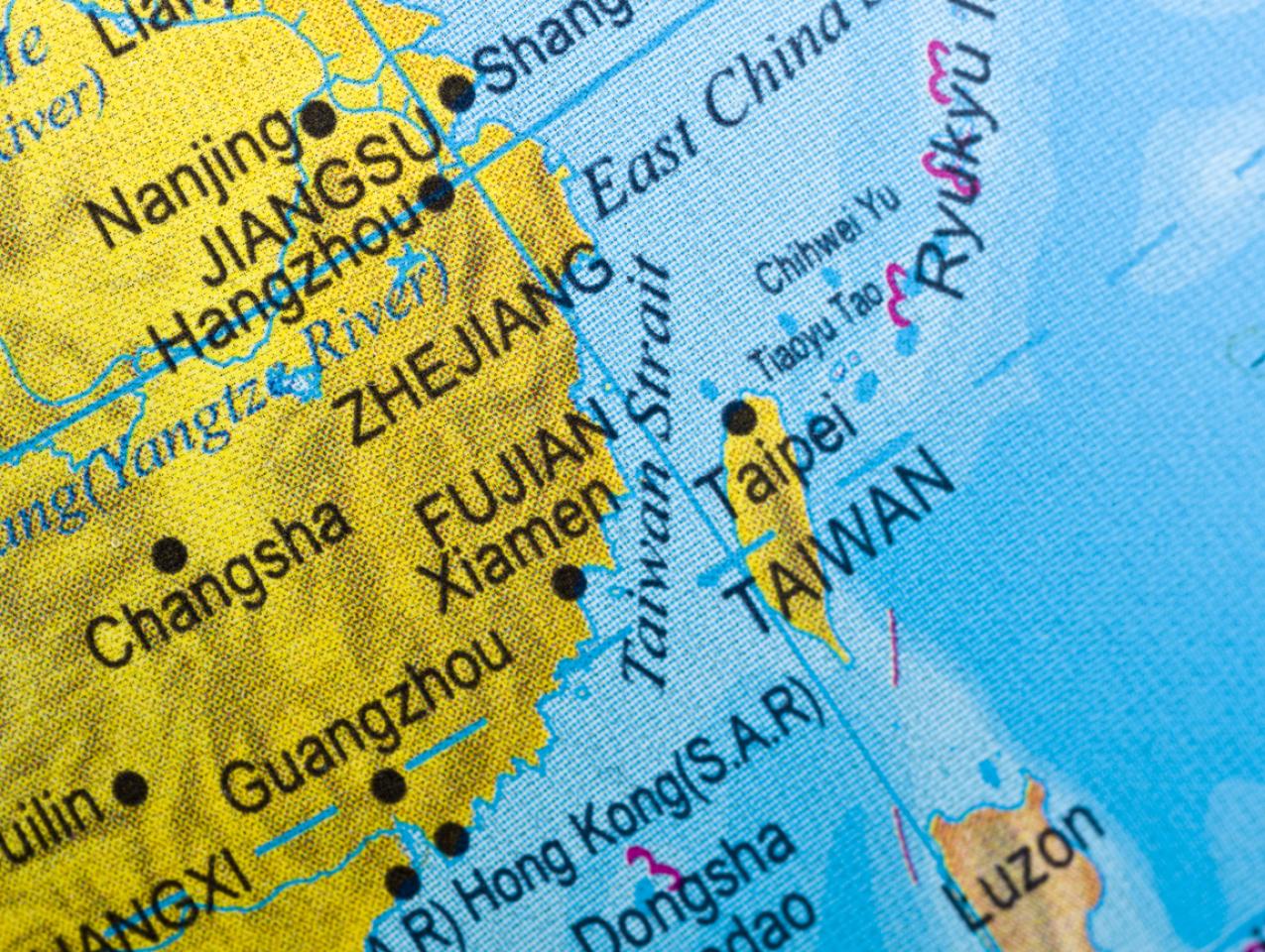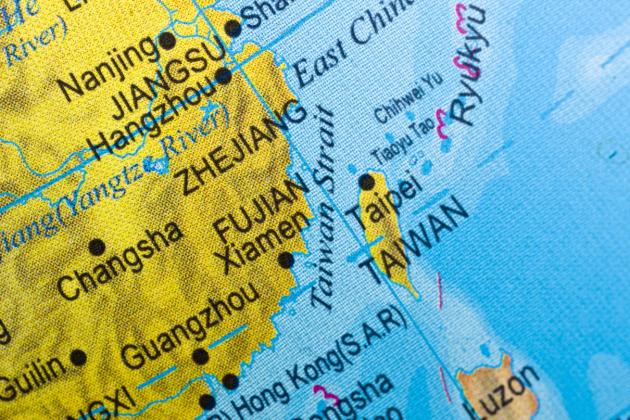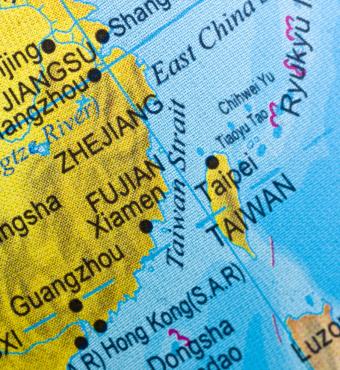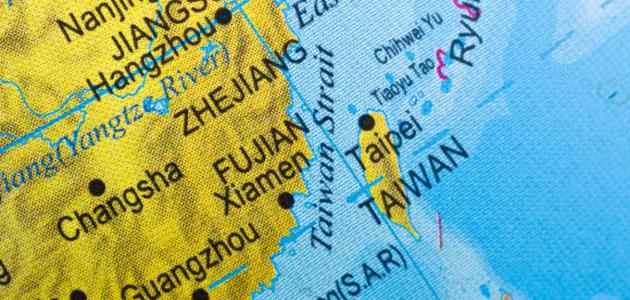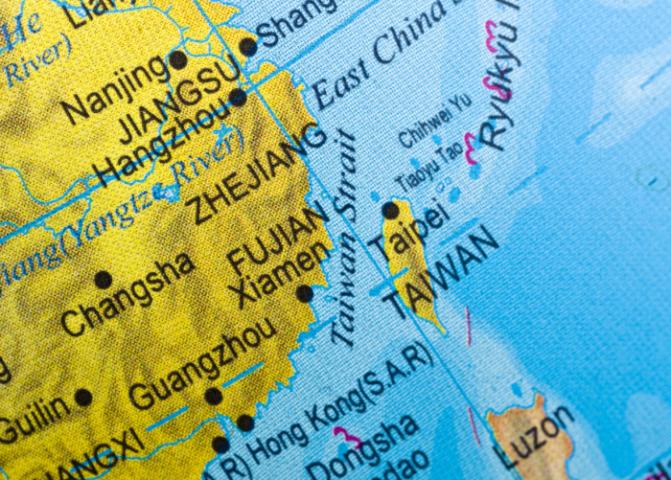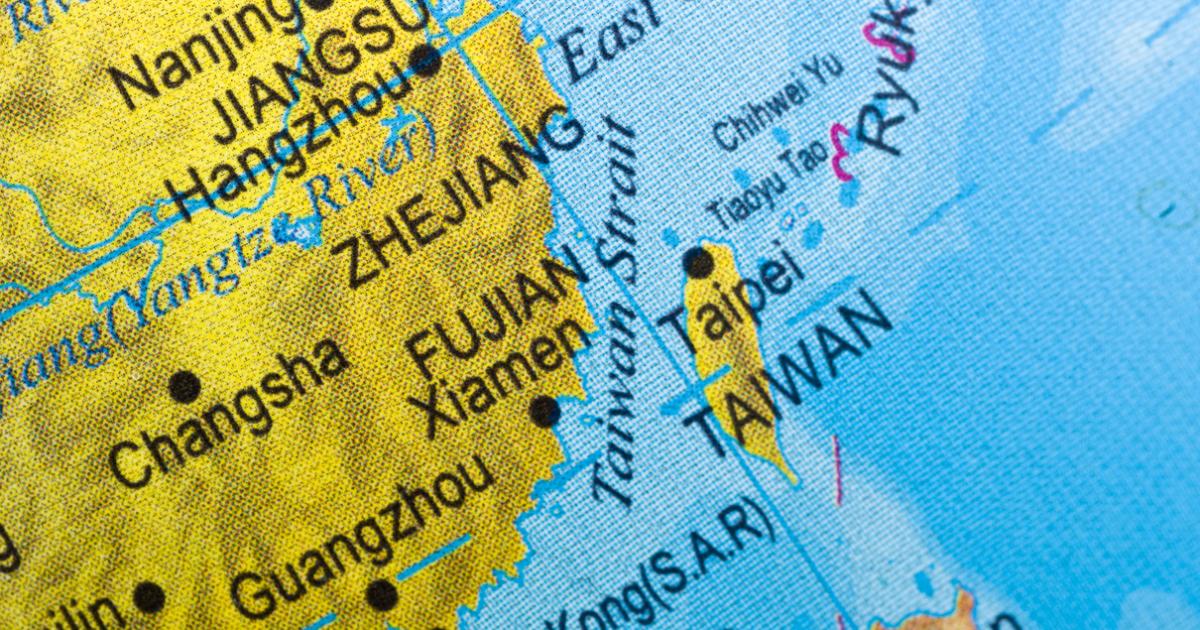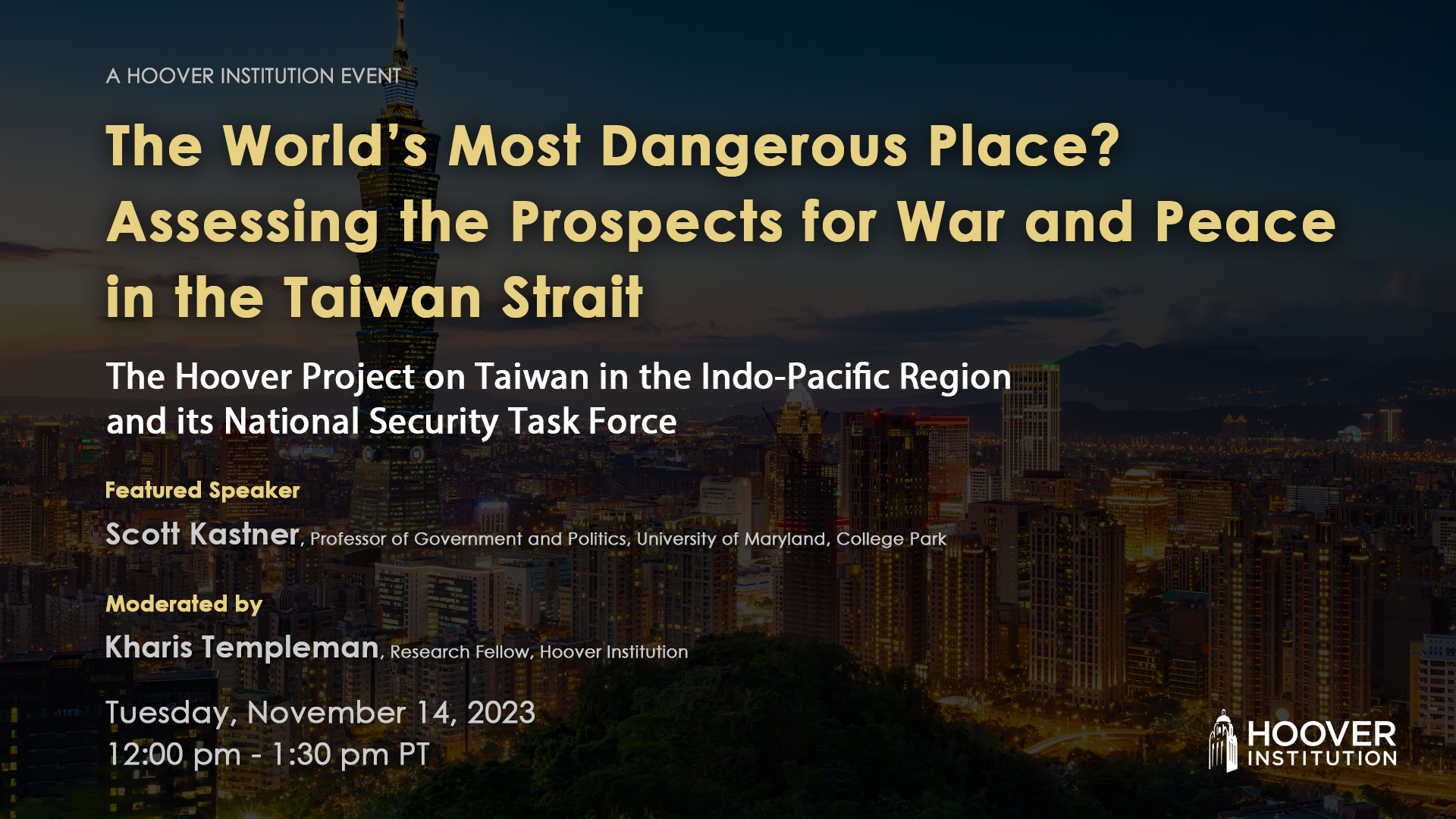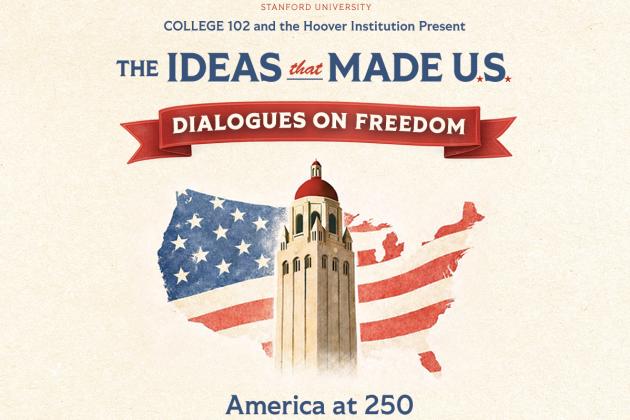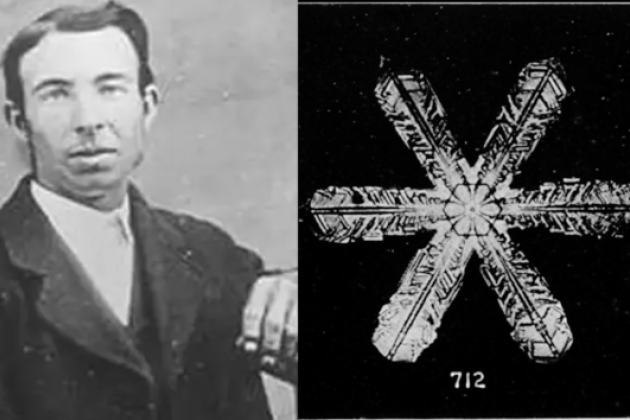On behalf of Taiwan in the Indo-Pacific Region and its National Security Task Force the Hoover Institution held The World’s Most Dangerous Place? Assessing the Prospects for War and Peace in the Taiwan Strait onTuesday, November 14, 2023 at 12:00 PM PT.
In recent years, numerous analysts have warned of an increasing risk of war in the Taiwan Strait. Others, however, have argued that military conflict remains unlikely, and that the risk of war should not be over-hyped. Drawing from his recent book, Scott Kastner outlines a framework through which to assess the prospects for military conflict between China and Taiwan. Drawing on international relations theory, Kastner outlines several causal pathways through which a Taiwan Strait conflict could occur, and assesses how broad trends in China-Taiwan-US relations are affecting the likelihood of these different scenarios. He concludes with policy suggestions for how actors in Beijing, Taipei and Washington could mitigate the risks of a war in the Taiwan Strait.
>> Kharis Templeman: Well, good afternoon, everyone, I'm Kharis Templeman. I'm a research fellow here at the Hoover Institution at Stanford University, and I'm the manager of the project on Taiwan and the Indo Pacific region. And it's my distinct pleasure today to introduce our distinguished guest and friend, Scott Kastner, coming to us live from the east coast, University of Maryland.
I'm really delighted to have Scott with us today to talk about his new book on a topic that's near and dear to my own heart, war and peace in the Taiwan Strait. I hope available at a library or bookstore near you or if not, on Amazon or from Princeton University Press, is that right, Scott?
>> Scott Kastner: Columbia.
>> Kharis Templeman: Columbia University Press, my mistake. And unlike a lot of newly minted experts in this area, Scott actually has long experience thinking about the issue of a possible conflict over Taiwan between the United States and China. He's a relative rarity in that he's spent most of his career thinking about this issue.
And he has, in my view, written a really careful, thorough, thoughtful, and, dare I say, elegant book on the prospects for conflict in the Taiwan Strait. And so I'm just, I'm delighted to have him here with us today. He also, I should note, is a professor in the department of Government and politics at the University of Maryland, College park.
He graduated from Cornell University for his undergrad, and he has a PhD from UCSD down in San Diego. In addition to this new book, he has a couple other books, political conflict and economic interdependence across the Taiwan Strait and beyond. And China's strategic multilateralism, investing in global governance with Margaret Pearson and Chad Brechter.
And so today we're gonna hear about war and peace in the Taiwan Strait. Scott, the floor is yours.
>> Scott Kastner: Great, thank you so much, Kharis, I really appreciate the opportunity to give the talk today. I was supposed to come out in the spring to give a talk, but I had this kind of horrible bout of food poisoning.
And so I'm glad I have the chance to do the talk today online. So I'm gonna share my screen. Okay, so as Kharis noted, I'm gonna talk a little bit about a new book of mine, war and peace and the Taiwan Strait, which kind of came out at the end of last year.
And which tries to kind of think a little bit about prospects for cross strait conflict, how a conflict could occur, and a little bit about kind of what might be done to avoid a conflict in the Taiwan Strait. So it wasn't that long ago when the crossrail relationship actually didn't seem that bad, right?
So during the presidency of Ma Ying zhou, who was Taiwan's president from 2008 to 2016, we actually saw a period of unprecedented detent in the Taiwan Strait. Under Ma's presidency, we saw a huge amount of dialogue between Taiwan and the PRC. We saw a raft of agreements reached between the two sides, including a number of economic agreements that largely normalized the bilateral relationship.
The opening up of direct travel across the Taiwan Strait, and increasingly higher level meetings. Culminating in this kind of unprecedented meeting between Ma and Chinese President Xi Jinping in Singapore in 2015. Okay, and so it wasn't that long ago then that this kind of issue had really, to some degree, kind of drifted to the back burner in places like Washington.
Where attention was kind of focused on other more pressing potential flashpoints for conflict, places like North Korea, Iran, and so forth. Okay, so this all changed pretty dramatically in 2016 with the election of Tsai Ing-Wen as Taiwan's president in a landslide. So although Tsai is, and I think quite rightly seen as being quite pragmatic and moderate in her approach to the crosshair relationship.
One thing that she has not done that her predecessor Ma did has been to recognize or accept a one China principle. This idea that, in principle, at least, Taiwan should be thought of as a part of China. And dating back to the 1990s, the PRC has made this a precondition for talks between Taiwan and the PRC.
Basically arguing that if Taiwan's not willing to kind of accept this idea that it's part of China in principle, then there's really nothing to talk about. And given kind of her unwillingness to kind of accept this principle and her party's unwillingness to do so. The unprecedented dialogue that we saw during the MA administration kind of came to a screeching halt in 2016.
And since then, the PRC has kind of steadily ratcheted up coercive pressure directed at Taiwan. And this pressure is kind of manifest in a number of different forms. We've seen it, some economic coercion directed against Taiwan. We've seen a lot of kind of diplomatic coercion directed against Taiwan, where, for instance, a number of Taiwans, diplomatic allies.
Countries that still have kind of recognized the Republic of China government, have been kind of have switched recognition to Beijing. And most notably, we've seen kind of a large increase in military coercion directed against Taiwan. And this coercion has taken a number of forms, we've seen a number of large scale military exercises, especially, for instance, in the aftermath of Nancy Pelosi's visit to Taiwan last year.
The PRC kind of frequently circumnavigates the island of Taiwan with military aircraft, enters Taiwan's self declared air defense identification zone. And pretty recently has begun frequently crossing the midline of the Taiwan Strait with military aircraft, something that in the past it had largely refrained from doing. So, with this kind of large and very kind of visible increase in military coercion directed against Taiwan, in recent years.
We've seen kind of growing concern about the risks of military conflict in the Taiwan Strait, and it's kind of a widely held concern. So there's kind of a cover of the Economist magazine from a couple of years ago, which I think somewhat hyperbolically. But that nonetheless poignantly suggests that Taiwan is the most dangerous place on earth these days.
And this was kind of before the war in Ukraine, which even further heightened anxiety about the possibility of a conflict in the Taiwan Strait. And we've also seen a number of kind of high ranking US officials kind of raise the prospect of conflict in the Taiwan straits with Philip Davidson.
Who at the time was the commander of US Indo Paycom in 2021, kind of testimony to Congress suggested that PRC use of force to achieve unification is something that's manifest during this decade. In fact, in the next six years. And we've seen other high profile us officials kind of make similar or issue similar warnings.
At the same time, I think it's important to note that there's not a consensus on this issue of how likely conflict is in the Taiwan Strait. And many analysts argue that across straight conflict is not something that's inevitable. And so here I'm putting up a headline from an op-ed of a couple of years ago by three very prominent experts on the Taiwan issue, basically kind of arguing against hyping the risk of conflict over Taiwan.
Okay, so it's this kind of big question that I try to get at in the book manuscript. How worried should we be about the possibility of armed conflict in the Taiwan Strait? And I suggest that part of the reason why we see these very differing assessments among very well informed kind of experts on the Taiwan on kind of the risk of war in the Taiwan Strait.
Is because it's an enormously difficult task to assess how likely conflict is in this case. In part because cross rate relations are characterized by a number of complex trends that have both complicated and at times contradictory effects on the potential for cross rate stability. And so, for instance, there are a number of trends that suggest reasons to be quite pessimistic about the risk of conflict in the Taiwan Strait.
So clearly, in recent decades, the military balance of power has shifted quite dramatically in the Taiwan Strait and between the US and China more broadly. Here I've put up just a simple chart that captures one metric of the shifting balance of power, military spending in the PRC versus Taiwan.
And obviously, as even as kind of military spending has been relatively stagnant in Taiwan, it's grown exponentially over the past couple of decades and a few decades in the PRC, right? And so this kind of rapid shift in the military balance of power is something that's potentially quite troubling.
Given that the PRC claims Taiwan is rightfully part of Chinese territory, it potentially suggests that the use of military coercion is something that's increasingly seen as feasible by the PRC. Likewise, we've seen kinda trends in Taiwan that potentially give reason to be concerned about the risk for conflict in the Taiwan Strait.
In particular, we've seen in recent decades, a movement away in Taiwan society from this idea that people identify as being Chinese. And if you'll just excuse me for a second, I'm feeling a little bit lightheaded, so I'm just going to sit down here. Sorry, okay, so we've seen kind of pretty rapid societal shifts in Taiwan, right?
Where if you kind of go back a few decades ago and you ask kind of people, do you consider yourself Chinese, Taiwanese, or both Chinese and Taiwanese. A majority of respondents replied either that they thought of themselves as Chinese or as both Chinese and Taiwanese. But you kind of fast forward a few decades and over the past 15 years or so, a clear majority of respondents to these sorts of surveys self identify as solely Taiwanese, right?
And so if you're looking at this from China's perspective, it suggests the possibility of a Taiwan that's kind of slipping away from China's grasp, a Taiwan that no longer even really thinks of itself as being Chinese. There are also some signs that China, especially under Xi Jinping, is becoming somewhat less patient on the issue of Taiwan, right?
So Xi Jinping has clearly indicated that he views unification with Taiwan as an important national priority, as have former leaders. But Xi has kind of, at times, said things that are, in particular, kind of suggests that he might be especially impatient on the issue. So he has a couple of times kind of indicated this is not an issue that should be passed on to future generations and so forth, right?
And again, this gives reason to be potentially pessimistic about the risk for conflict in the Taiwan Strait to the degree that you have a PRC that's kind of impatient about making progress on unification. And there's some evidence of broader public opinion in a PRC that's actually fairly hawkish.
And so here I'm just kind of putting up an article by Jessica Chen Weiss, a well known expert on Chinese politics and foreign policy, who undertook a study of a survey of Chinese public opinion. And found some evidence of kind of growing hawkishness among the, among the Chinese public, okay?
And so there are a number of reasons to be kind of concerned, right? About the kind of the risk of military conflict in the Taiwan Strait. But at the same time, there are other kind of stabilizing factors. And so one factor that is especially, I think, important to highlight is the extensive economic linkages across the Taiwan Strait and between China and the global economy.
And so here I've just kind of put up a chart that just shows the degree to which China and Taiwan kind of rapidly became economically integrated during the 2008 aughts. In particular, China is by far Taiwan's largest trading partner. Today the vast majority of Taiwan's outward foreign direct investment is in China.
And there is evidence that China also depends quite heavily on this relationship, especially given Taiwan's importance as a manufacturer of high end semiconductors. And so you might expect that this is a reason to be a little bit more optimistic about the prospects for conflict. In that it suggests that if a conflict were to occur, it would be quite costly for all parties.
And even though there are kind of some trends in Taiwan politics and society that undoubtedly concern the PRC greatly, the growth in Taiwan centric identity, the fact that the DPP has done quite well in recent presidential elections. There are other things that we might expect kind to give the PRC more reason to be at least somewhat patient, right?
And I think foremost among these is that there's still a lot of pragmatism in Taiwan, public opinion on sovereignty issues. And so here I've put up kind of a running poll that's kind of a survey that's kind of conducted over time by the same outfit as the previous one that I put up.
Which basically asks individuals kind of their views on final sovereignty issues, giving people a range of options from immediate independence to immediate unification and a number of kind of intermediate status quo options. And what's interesting about the findings, the consistent findings from this poll over time, is that a majority of respondents typically not only support the status quo, but don't even kind of indicate a preference on final status issues.
They indicate either that they support the status quo indefinitely or they want to maintain the status quo indefinitely or that they want to maintain the status quo for now and make a decision on final status issues at a later date. Okay, and so this indicates that there's a lot of pragmatism in Taiwan public opinion on sovereignty issues.
And other polls kind of suggest that most Taiwanese are opposed to dramatic steps that could provoke China because they don't want to see a military conflict in the Taiwan Strait. Okay, so my hope in writing this book was to kind of start to Think about how we can think about how these different trends might fit together and to think a little bit about what are some of the underlying processes that could give rise to a conflict in the Taiwan Strait.
And I'll just kinda note that I don't reach strong headline kind of conclusions about the actual likelihood of conflict, right? So I'm pretty neutral on this issue about kinda how likely a conflict is. It's something that I think is a real possibility, but it's also, I'm kind of on the side that views it as something that's not inevitable.
The purpose in the book is to more kinda think about what are the kinda underlying causal processes that could give rise to conflict. Okay, and so the approach that I kinda take in the book is it's largely a rationalist approach. And I'll just note that I kind of begin by emphasizing that both China and Taiwan have a mix of status quo and revisionist preferences relating to Taiwan and Taiwan status.
Okay, so China, on the one hand, has very much kind of a status quo goal of wanting to kind of stop Taiwan independence and to stop kind of movement in the direction of independence. But China also wants unification with Taiwan ,right, and so you could kind of see, like, this kind of status quo goal of stopping Taiwan independence, right?
And often the PRC kind of frames its rhetoric, especially when kind of threatening military force against Taiwan, as kind of pursuing a status quo goal of stopping Taiwan independence, okay? But the PRC has this kind of longer term, highly revisionist goal of achieving national unification with Taiwan. And Taiwan, for its part, has its own kind of status quo goal of kind of avoiding being coerced into unification, okay?
But across the political spectrum, there's a pretty broad consensus that Taiwan should have more international space than it's now afforded. And many within Taiwan want to see formal independence if that outcome were possible. And polls kinda suggest that upwards of 70% of respondents typically say that they would support independence if it could be achieved peacefully, okay?
So both sides, you kinda have this kind of mix of status quo and revisionist preferences, and in turn, you can kind of envision two kind of broad pathways to conflict, where each side is kind of pursuing its revisionist preferences, running up against kind of the status quo preferences of the other side, right?
So you can imagine a pathway to conflict that involves Taiwanese revisionism rooted in actual or potential efforts by Taiwan to formalize its independence or effectively to preclude unification as a viable future scenario. And you can imagine a pathway to conflict that involves Chinese revisionism of kind of efforts by the PRC to realize its own highly revisionist goal of formal unification.
>> Scott Kastner: Okay, so in the book, I kinda develop kinda simple and pretty kinda stylized model of the cross straight relationship that kind of draws from kinda some of the models that you see in kind of some of the rationalist conflict literature. And here I kinda conceptualize the Crossrail relationship as kind of bargaining over Taiwanese sovereignty.
And I kind of think of Taiwanese sovereignty as residing on a continuum that ranges from unification with the PRC on one end and formal Taiwan independence on the other end. And you can kind of think of China's ideal outcome, of course, as lying kind of on the unification end of the continuum.
And for simplicity, I think of Taiwan's ideal outcome as lying toward the independence end of the continuum, although recognizing that this is also contested within Taiwan.
>> Scott Kastner: Okay, and I kinda think of the status quo as lying somewhere in between these kind of two extremes, right? So Taiwan currently enjoys kind of de facto independence and autonomy, but it kinda lacks kind of formal, internationally recognized legal independence.
>> Scott Kastner: Okay, and I kind of think of so in the model, I kind of imagine that if the two sides were to fight a war, that this would result in kind of some new outcome with regard to Taiwan status. And here, for simplicity, I've just kind of arbitrarily placed the war outcome to the left of the status quo closer to the unification end of the continuum.
And so you could think of the war outcome in two ways. You could think of it as if the two sides were to fight a war this would be the bargain that they would reach to end fighting, which would result in some new understanding about Taiwan's status. Or you could think of it more probabilistically as the likelihood that the PRC prevails in a conflict and the higher that likelihood and gets to kind of impose its preferred outcome of unification.
Right, and so the higher that likelihood, the closer W would lie to the unification end of the continuum. Okay and then, of course, drawing from bargaining theory, international conflict, I make the assumption that war would be costly for both sides. I don't think it's necessary to kind of outline how horrific the costs of a major military conflict in the Taiwan Strait would be.
But needless to say, those costs would detract from the utility that each side kind of derives from the war outcome. And once you take into those costs into account, Taiwan's war utility lies not at point W, but kind of further away from its ideal point of independence, at a point that I've labeled here as point T.
And China's war utility lies further from its ideal point of unification at a point that I've labeled here as point R. And the reason I labeled that as kind of point R is you could basically think of this as China's red line or its reversion point, right? And so as long as the status quo resides to the left of point R in this kind of stylistic model, then China prefers to kind of accept or live with that status quo rather than initiating military conflict.
And I assume, I think kind of realistically, that if there were to be a war, it would be China that would be initiating that conflict. Okay, so then I have a couple of chapters in the book. Then, in the context of this model, try to think about how a war could arise either as a kind of a consequence, broadly, of revisionist behavior by Taiwan versus revisionist behavior by the PRC, okay?
And so when thinking about a war rooted in Taiwan revisionism, one potentially obvious possibility is you could imagine a relatively revisionist Taiwan government pushing the envelope on sovereignty related issues, right? Seeking to improve Taiwan's international status and so forth, in a way that basically crosses the PRC's reversion point or its red line, thereby potentially triggering a military response, right?
If we kinda go back to the 90s and the 2000 aughts, many analysts of the cross strait relationship thought of this as the most realistic scenario for how a cross straight military conflict would arise ,right? And they had a number of things in mind for what Taiwan could be doing that would provoke a conflict from the PRC, right?
So they highlighted things like efforts by Taiwan to raise Taiwan's international profile. Right, and so this was especially notable during the Li Donghui era, where there's kind of an effort to kind of pursue what he termed pragmatic diplomacy, to kind of increase Taiwan's international. Visibility noted most or that kind of the apogee of kind of this effort was a visit to his Alma Mater at Cornell University in 1995, which led to a prolonged crisis in the cross straight relationship.
You could also kind of look at kind of the way that Taiwan's presidents have described the nature of Taiwan's sovereign status and its relationship to the PRC. And so Lee, late in his time in office, kind of described the cross straight relationship as being a state to state relationship.
Or at least a special state to state relationship, kind of implying that he thought of Taiwan as being kind of a sovereign, independent, equal to the PRC. His successor, Chen Shui-bian of the Democratic Progressive Party, arguably went further in kind of arguing, that each side of the Taiwan Strait is a separate country without kind of qualifying it like Lee did.
Well, at least, it's a special state to state relationship, right? Chen didn't have that kind of qualifier, and even Taiwan's current president, Tsai Ing-wen, has kind of highlighted Taiwan's functional independence from the PRC, right? So she's kind of indicated that Taiwan should be thought of as an independent country already that calls itself the Republic of China to come at Taiwan.
Also, you could point to, especially during the Chen Shui-bian administration efforts to, if you will, de sinify Taiwan or kind of highlight Taiwan's otherness from China. It's Taiwaneseness rather than its Chineseness. And this took a number of forms during the Chen Shui-bian administration, efforts to rename entities in Taiwan as Taiwan rather than as China.
Efforts to downplay the legacy of Chiang Kai-shek, who, of course, kind of viewed national unification as kind of a core goal of his. And here I've kind of put a picture of what the Chiang Kai-shek Memorial hall looked like in the waning days of the Chen Shui-bian presidency, where the honor guard was removed.
The lights were turned off, kites were hung from the ceilings. And so Jung is kind of sitting there in the darkness, kind of obscured from people who came into the hall, who saw instead kind of large placards with pictures of Taiwan's democracy movement. And the name Taiwan was added in English to the RoC passport during this time and so forth, right?
And so again, you could kind of see this as an effort to kind of move Taiwan on this kind of continuum of sovereignty toward the kind of the end, the independence end of the continuum, right? And so one kind of scenario for conflict, again, kind of involves a Taiwan government that's essentially kind of pushing the status quo toward the end of the independence, end of the continuum.
Potentially crossing China's reversion point or its red line and triggering a military response. Ultimately, I think this is a problem that's kind of rooted in an information problem. The issue here is that it's hard for Taiwan to know exactly where PRC red lines lie. It's hard to know how far Taiwan can push without triggering a military response.
And it's hard for the PRC to communicate this information credibly without actually using military instruments. And so I think that ultimately, when people kind of talked about the risk of conflict in the nineties and 2000 aughts, they really had in mind kind of an information problem where it was.
Taiwan was kind of pushing toward independence, but there was kind of uncertainty about what the PRC would ultimately tolerate, and no one really wanted to kind of trigger an actual war in the Taiwan Strait. Okay, I argue in the book, though, that several factors did combine at the time and have kind of continued to combine to mitigate the risk of this sort of a scenario, okay?
Most importantly, I think, is that Taiwan's costs of conflict are getting unambiguously worse as a consequence, both of the rapidly shifting military balance of power. But also because of deepening economic integration across the Taiwan Strait, right? This, in turn, I believe, makes Taiwan's leaders inherently more cautious in kind of testing China's red lines, kind of testing what China will tolerate in terms of kind of independence.
The risks of kind of going too far and triggering a military response have simply become too great. And I think that this is partly why we see kind of a more moderate Tsai presidency that's not quite as visible in her efforts to highlight Taiwan's otherness from China as Chen Shui-bian was.
But there are other factors as well. So I highlight in the book that China's actually been quite good at sending costly signals to indicate that even though it's a little bit vague about the precise steps that Taiwan could take that might trigger a military response. The PRC has been pretty clear that there are certain things that Taiwan could do that would be too far right?
Things like renaming the country, so forth. And so the PRC has been pretty good at kind of signaling that, I think, pretty credibly with kind of frequent displays of military force and so forth. And finally, I think it's important to note as well that Taiwan is functionally independent now, right?
It has its own government, it has its own elections, it has its own military right? It's autonomous, for all intents and purposes, it basically gets what most countries of the world get in terms of sovereign status. Further gains on sovereignty issues, then, are mostly, not entirely, but mostly symbolic for Taiwan, okay?
And what that means in turn is that to the degree that Taiwan kind of pushes the envelope on sovereignty related issues, it's essentially risking very concrete downside costs in the pursuit of mostly symbolic gains. And I think that this also kind of induces a level of caution in kind of pursuing those gains, okay?
So this is a scenario that I think was quite worrisome about 15, 20 years ago, but it's become less worrisome over time. I do know in the book that there is kind of a more insidious kind of version of kind of a red line conflict scenario that I kind of refer to it.
One is that's kind of rooted in the potential for future Taiwan revisionism. And if you're familiar with kind of some of the literature on causes of war, this is kind of a more. I think, of a problem that resembles a credible commitment problem and not an information problem like the scenario that I just described, okay?
And it's basically rooted in PRC fear that Taiwan might be kind of slipping away from China's grasp for good, right? Underlying this scenario are kind of fears in Beijing about a number of trends in Taiwan, and especially Taiwan US relations that the PRC fears kind of would, over time, effectively preclude the possibility of unification with Taiwan.
Things like the shifting identity trends that I noted earlier that from the PRCs perspective may be making Taiwan increasingly ungovernable. From China's perspective, people don't even think of themselves as Chinese anymore, right? And deepening US Taiwan security cooperation, which the PRC kind of worries could make it impossible to coerce Taiwan toward unification, okay?
And I argue in the book that this resembles a commitment problem because it's a. Hard for Taiwan's leaders to credibly commit to alter some of these underlying trends, especially trends in Taiwan society which they have limited direct control over, right? But also, kinda, it's hard for them to tie their hands of kinda their successors when kinda thinking about US, Taiwan ties and so forth, right?
And the risk then is that Beijing kinda concludes that it needs to act sooner rather than later to prevent Taiwan from becoming irretrievably not Chinese. Okay, but again, I argue that there are mitigating factors in the book, and I don't think we should kind of overly worry about this scenario.
Okay, most important, there are other trends that give Beijing reason to be patient, right, and reason for optimism, including most obviously, the shifting balance of military power. Okay, and furthermore, unless Beijing is very confident that not only would it prevail in a conflict, but that it would prevail and be able to kind of end this issue for good by occupying Taiwan, right?
Any use of military force is probably, only makes these commitment problems even worse cuz they're gonna reinforce interest in Taiwan and seeking closer security ties with the US. And they're gonna reinforce suspicion of the PRC in Taiwan. Okay, and so the only way to really resolve this problem is by actually occupying Taiwan militarily.
And unless the PRC is confident it can do that, it can't be confident that can resolve this issue. Okay, how am I doing for time? So okay, so got about five, ten more minutes. Okay, so in the book, I also kinda think a little bit about kinda the flip side then of kind of the risks of conflict kinda rooted in PRC revisionism.
Or kind of efforts by Beijing to kind of achieve its own clearly revisionist goal of kinda formal unification with Taiwan. And of course, this is in recent years. This is what kinda gets all the attention among analysts kind of thinking across any conflict. Okay, and it's worth kinda beginning by noting that it's pretty clear, right, that recent trends in the Taiwan Strait kinda suggests that Beijing's war utility is improving.
I think that this isn't entirely certain, but it's likely, right? The shifting balance of military power is probably kind of increasing the PRC's confidence that it could prevail in a cross. And it's probably reducing the PRC's kind of expected cost of conflict. And we can also kinda talk about things like economic integration, which kind of grew very rapidly during the 2000 aughts, the 90s.
But in recent years, it's grown much more slowly, and in fact, it's kinda leveled off kinda the amount of economic integration that we see across the Taiwan Strait, right? And so there are reasons to think that the PRCs kind of expected utility for fighting a war is improving.
Okay, and to the degree that that's the case, we'd expect that China's red line is essentially shifting to the left in this kinda stylized model that I presented. And of course, if we kinda get to a world where, so in Taiwan revisionist scenarios, we're kinda worried about kind of a Taiwan government pushing the status quo to the right of point R.
And this is where we're worried about kinda what happens if R shifts to the left of the status quo, okay? And clearly if we get to that kind of a world, the PRC would get a better utility by initiating military conflict than accepting a continuation of the status quo.
Okay, of course, Taiwan is a strategic actor, right? And once R does shift to the left of the status quo, if we come to that point. Then Taiwan has incentives to accommodate this, right, because war would obviously be a horrific outcome for Taiwan, right? And so to the degree that kinda the PRC's war utility is improving to such a degree that it prefers war over the status quo, we would expect that Taiwan would have incentives to accommodate that reality.
And basically, if we kinda go back to this chart to kind of push the status quo toward the unification end of the continuum, right, by perhaps accepting a one China principle, right, and so forth. Okay, and in fact, right, people like John Mearsheimer, most famously, I think, kind of have argued that this is exactly what we're likely to see happen, right?
So about ten years ago, Mearsheimer kind of very provocatively kind of published this article in The National Interests, Say Goodbye to Taiwan, where he was basically saying that Taiwan is doomed, right? And the reason it's doomed is because of the rapidly shifting balance of military power in the Taiwan Strait.
And over time, the best that Taiwan could hope for is to accommodate this reality. And so it should be kinda getting used to the fact that it's gonna just have to accept that it's gonna increasingly have to accommodate the shifting balance of military power in the Taiwan Strait.
In the book that I wrote, I'm kinda skeptical that this would actually happen this way, right? And in fact, I think it's actually relatively unlikely that if we get to a world where the status quo or that China's kind of war utility kinda shifts so much that it believes that it would get a better outcome from fighting war than kind of accepting a continuation of the status quo.
I think it's very unlikely in that kind of world that Taiwan would kind of accommodate this new reality. And there are a number of reasons for this. There are kind of information-related reasons, right? It would be really hard for the PRC to credibly signal that its red line has actually shifted to the point where it would prefer war, right?
Why would it be hard to credibly signal this? Because China's kind of accepted Taiwan's separateness from China for decades now, right? And so it'd be very hard to kinda credibly say or make the claim that the PRC is now willing to use military force, whereas kinda in the past it wasn't.
Okay, but even if its able to kind of overcome this kind of basic problem, there are a number of other kinda hurdles having to do with things like domestic politics in Taiwan, right, where there's very little support in Taiwan for accommodation on sovereignty issues. And so it would be very, very difficult politically for a leader to kind of move in the direction of even kinda hinting at accepting one country, two systems, for instance, which is very unpopular in Taiwan.
There are psychological reasons, okay, kind of the last bullet point here, where there's kinda a wide understanding in Taiwan, right? However you wanna call the name of the country, whether it's Taiwan or the Republic of China, there's a widely held belief among Taiwan citizens that Taiwan is now a sovereign country, right?
And people tend to be resistant to kinda giving up things that they already believe that they have, right? And so this would very much kind of involve kind of moving into kind of a domain of losses, if you will, for Taiwan. And so there are reasons to kind of expect risk acceptance behavior if we get into a world where even Taiwan kind of believes that the PRC is kind of making credible threats of military force.
And finally, credible commitment problems are likely to loom really large here. And the problem here is that to the degree that Taiwan kinda concedes ground on sovereignty-related issues, it's likely to erode its kind of future bargaining power, right? And I think this is most obvious when we kind of think about US, Taiwan Security ties, right.
And so to the degree that Taiwan appears to be accommodating the PRC. I think it's reasonable to expect that Washington is gonna be less willing to kind of signal strong support for Taiwan. And we've seen this in the past, right. So during the Mai administration. When we had some accommodation in kind of a time where kind of the risk of conflict was lower.
US China relations were better than they are today by a long shot. You still had kind of some concern in Washington over what Ma was doing, right. So one of the co chairs of the Taiwan Caucus in the US House, for instance. Basically signaled that he was gonna quit because if Ma was giving up, why should the US continue to pursue this issue?
And so I think that there's reasons that Taiwan would be very hesitant about appearing to be kind of accommodating the PRC. Because of concerns about what that would mean in terms of kind of us support for Taiwan, okay. And so I think if we get into a world where the PRC believes that it gets a better utility from starting a war.
Than accepting the status quo, it would be very difficult to avoid war in that sort of a scenario, right. And so ill just kinda conclude that the key is to avoid kind of getting into that scenario or that kind of a situation in the first place, right. And thats kind of how I conclude the book.
I dont have great ideas in this regard. I think clearly its important that the US maintain a strong deterrent posture in the region. While also making sure that the PRC views the status quo as something that is tolerable, right. And so what does that mean? It means not going overboard and kinda suggesting that US ties to Taiwan are unconditional, right.
Not causing the PRC to kind of lose hope about the feasibility of long term unification, right okay. And then more generally, the worse the US China relationship is as a whole, arguably the less of a stake the PRC has in a stable status quo in the Taiwan Strait.
And so I think that there's something to be said when thinking about prospects for conflict in the Taiwan Strait, right. There's something to be said for at least trying to maintain some semblance of stability in the broader US China relationship. Okay, so I'll stop there. I've probably talked for too long already.
I'll stop my screen share. I welcome any questions that people might have.
>> Kharis Templeman: Yeah, no, that was great Scott, and right on time thanks. I just like to invite our online audience. If you do have a question, you can go ahead and type it into the Q&A box.
I've got a couple in the queue already. And I will try to keep this very conversational. I have read most of the book, and so I have a couple questions I wanma start out with here. And then, then we can transition over to the audience questions. But the first one is just kind of a big picture question about the US role in this relationship and in particular timelines.
So there's a debate right now in the Taiwan watchers community about whether time is on the side of the United States. Or of China in this relationship. And you can make an argument both ways. You can argue that the United States actually looks like we're suffering from some significant political dysfunction.
Relative decline, rising debt loads. We're more isolationist and divided than we were before. And in Beijing, watching these trends, they should just be patient because that will work in their favor over the long run. On the flip side, there's also an argument about peak China, and that we're at peak China.
And China's demographic problems and its struggles to move over to a more consumption driven economic model. Are likely to drag it down in the future, and it will have fewer and fewer resources to invest in a world class military than it does today. Can you help us think through using your model what the trends.
Or the timelines in these two big powers suggest for the likelihood of conflict across the strait?
>> Scott Kastner: Yeah, no, that's a really good question, Kharis. And so my view is that there is, so, as I kind of try to hint in the talk, so long term trends on these kind of issues are ambiguous, right.
And so I think you're right. So there is a debate, and I don't really have a strong view on kind of like net analysis, right. Our long term trends, right. If we kinda look at 2040 or whatever, right. Is it gonna be more or less favorable from a US standpoint or a Taiwan standpoint.
When kind of thinking about, like, all the different things that kind of could affect kind of the prospects for. An actual military conflict in the Taiwan Strait, right. So I think you're right that. So there are kind of these peak China arguments. I'm a little bit like, I think that they get a little bit oversold.
I do think that there are big downside risks in China. The biggest probably being kind of the political side of the equation and Xi Jinping's kind of management of the country. But it's not clear that that's gonna have catastrophic implications for China's military development over the long term.
And there's something to be said that a China that's stagnating economically. Potentially poses greater challenges to the US, right in a lot of ways. It may be less constrained by concern about implications of conflict for its ties to global markets and so forth. So I think it's really hard to say over the long term.
Whether we're in a peak China situation where over the long term trends favor the United States. Or whether over the long term trends are continuing, going to continue to favor China. And I agree, the US poses, has its own kind of huge problems that it faces. And if I were China, I would probably at least kind of sit around and see what happens in the next presidential election.
And before kind of making any kind of firm decisions about this.
>> Kharis Templeman: Okay.
>> Scott Kastner: That's a non answer to your question. So I don't have a strong view on that.
>> Kharis Templeman: Okay, well, let me pose it another way and ask. There's this argument that there may be a closing window of.
Where the military balance in the western Pacific has shifted clearly in China's favor. But it may not be in China's favor for that much longer as new things come online and the US's own military capabilities. So does that argument sound plausible to you, or is it relevant to your analysis here?
>> Scott Kastner: Yeah, no, it's plausible, and it's one that I think merits concern, right. So if it's true that chinese leaders do perceive a closing window of opportunity, right. And so they kind of see, they both see kind of a world where a window is gonna open, right. What I've kind of escribed as China's reversion point, shifting to the left of the status quo, where there's a belief that a military option would be better than accepting a continuation of Taiwan separation from China.
But there's a belief that this is a temporary phenomenon. And it's not like the military option is gonna keep getting better and better, but that's gonna, again shift back over the status quo that incentivizes kind of acting sooner rather than later. And so, yes, it's something, likeI think there is something to that logic.
I think ultimately it's empirical question that I don't have the military expertise to have a strong position on whether this is actually going to happen. But if it were to happen, it would be bad.
>> Kharis Templeman: Yes, I agree with you there. So let's talk a little bit more about the US kind of.
So you theorized the Taipei and the Beijing parts of the strategic triangle quite a bit in the book. The US part is a little bit less theorized or developed. And so a couple of the big issues that I often encounter in this area. One is whether the US should move to strategic clarity to kind of increase the credibility of its threat to intervene if China goes after Taiwan.
And a second and broader question is about whether us commitments, the credibility of us commitments around the world are in some sense signals of the credibility of the us commitment to Taiwan as well. So you hear specifically the Chinese are closely watching what the United States does in Ukraine.
And if we don't support Ukraine, the Chinese will see that as a sign of weakness and come after Taiwan, or the US pullout from Afghanistan should make the people in Taipei very nervous right now. I've specifically seen those quotes from people. And so, how do you think about US credibility in this environment?
>> Scott Kastner: Yeah, okay, again, those are great questions. So let me start with the ambiguity, the strategic ambiguity kind of piece of this. So, yeah, so this has definitely gotten a lot of attention, right, this debate about, so the US's commitment to Taiwan. It's clearly ambiguous, right? Like the US has kind of indicated that has an interest in Taiwan security, but it's left a lot of wiggle room in terms of kind of how it would actually respond to a conflict in the Taiwan Strait.
So my view is that, it's a little bit of a misplaced debate, right? For a couple of reasons. So one reason is that my understanding is that the PRC is largely kind of assuming that the US is gonna intervene, right? And so it's probably right, like the PRC is most likely paying much more attention to things like, could the US effectively intervene rather than kind of, what are officials in Washington saying about this?
Because that's kind of point number one. Point number two is that, I don't think that kind of saying that the US has, saying verbally, which incidentally, Biden's already done like four times, right? Saying that the US will defend Taiwan if it's attacked, does that dramatically increase kind of the credibility of US commitments somehow?
I don't think so, right? For a couple of reasons. Most obviously, there's leadership turnover in the United States. And Trump, for instance, there is evidence that he doesn't really care that much about Taiwan, i.e., the Bolton memoir and so forth. And so I think it's really, really hard for any official in the US right now to kind of credibly kind of make a statement, right?
That is going to kind of tie the hands of successor administrations. And you see this even existing formal defense agreements that the US have, right? Are potentially in question if Trump were to come into office again, right? And so I think that there's limited value. There's maybe some value, but let's not overstate how much is actually gonna kind of shift kind of views about what the US is likely to do a few years down the road in the context of a Taiwan conflict.
With regard to kind of this issue of, US kind of reputation and kind of what, how what the US does elsewhere in the world kind of affects kind of perceptions about what the US is gonna do in Taiwan. Again, I suspect that that's overstated. Again, I'm largely suspecting this.
Not that you don't have inference. China has at times drawn inference about the US. Way back in the day, in the 90s, there were writings in China that the US is casualty averse, because look at Somalia, right, and the quick pulling out of Somalia and so forth. It's not like no one draws any inference based on what countries do in other contexts.
But I also think that you don't wanna overstate the degree to which there's really strong inference, that somehow the Taiwan situation is analogous to Ukraine, or especially to Afghanistan. First of all, it would be easier for the US to intervene directly in a Taiwan contingency, but also there's reasons to think that the US kind of views Taiwan as important in different ways than, say, Ukraine.
It has a much longer standing, kind of, though now informal, technically a much longer kind of security relationship with Taiwan, including a past formal alliance agreement that lasted until the US switched diplomatic ties and so forth. So I wouldn't overstate the degree to which kind of inference can be drawn based on what the US is doing in other places.
>> Kharis Templeman: Okay, great. One more question, then I'll turn over to the audience. I wonder if you could talk a little bit about the implications of public versus private behavior and signaling, especially in the US Taiwan relationship. So the things that really seem to provoke a strong response from Beijing in the US-Taiwan relationship are high profile public things.
So you noted Li Donghui's visit to Cornell in 1995. More recently, we had the Pelosi visit to Taiwan, and Beijing signaled very early on they were gonna respond in a very dramatic way to that event. But there's lots of stuff that we do with Taiwan now that we didn't do five years ago that's mostly private.
And so can you help us think through what might be advantageous to stability, or what might help stability in the cross straight relationship in terms of public versus private signaling and activity?
>> Scott Kastner: Yeah, so again, that's a great question. And so my view on this is that of the public high profile stuff, because I'm of the view that I don't really think that the US commitment to Taiwan is that much in doubt.
There's debate about what the US is gonna do, but you're right, all us alliances have some ambiguity in them, right? And kind of expected US response is gonna kinda hinge on kind of the facts on the ground. It's not like the US kind of went to war with North Korea after the Yeonpyeong incident, right?
The US is gonna kind of make decisions based on kind of what happens. And so I don't think that the overall kind of US commitment to Taiwan is that much in doubt, okay? And so consequently, I'm kind of skeptical about kind of the value added of kind of high profile, kind of public demonstrations of commitment.
Especially things that do nothing in terms of actually kind of changing the facts on the ground in terms of things like Taiwan's war readiness or kind of balance of power or whatever, right? And so quintessential examples like a high profile speech in the US, or by a Taiwan president, right?
Rather than kind of a more low profile meeting with some people on a stopover, right? Or the speaker of the House going to Taiwan, right? Which is a little bit different because that wasn't the administration, right, and so I think that China massively overreacted to that. But broadly speaking, people kind of calling for kind of port of call visits to Taiwan, which would be highly visible and kind of in your face to China kind of thing that the US could do or kind of public meetings at high levels of kind of officiality, right?
I don't think a lot is accomplished by that in terms of kind of signaling, but it does put the Chinese government kind of in an awkward position where it looks weak if it doesn't respond strongly, okay? And so I think it's generally not a good idea to do this sort of thing, I think it's counterproductive and it encourages kind of the PRC to kind of react in a strong sort of way.
And so I'm kind of the view that the US should be mostly seeking quieter ways to kind of enhance deterrence in the Taiwan Strait.
>> Kharis Templeman: Hm, okay, well, that's a great segue to one of the audience questions here, it's actually Jim Fearon is on here. And so his question is about Taiwanese will to fight and whether you think Taiwanese leaders would actually fight if they didn't expect military support from the United States.
And secondly, how much do you think Beijing worries about the effect of US policy on DPP's pushing the envelope or push for independence?
>> Scott Kastner: Yeah, no, I think that there's a view. So starting with kind of the second one, obviously, I drew heavily from your work Jones, I appreciate that.
So, in terms of kind of US influence on incentivizing the DPP to push the envelope. Yeah, I think that there's definitely a view of this in China that the US, a tightening of US Taiwan security relationship in recent years is essentially enabling the DPP to. Not even just kind of pushing the envelope, but it's making the DPP kind of more confident and kind of resisting kind of any moves toward political talks with the PRC, right?
And so I think that that's absolutely kind of seen as there's a link between those. In terms of kind of Taiwan world of fight, I think it's really hard to say, so my guess is that. So the polling on this is a little bit ambiguous, my understanding, I've seen a couple of different polls.
So there's the national security poll that Emerson Yeoh does from a couple of years ago, which kind of suggested that actually a substantial percentage of the population kind of indicated a willingness to kind of resist in some way, right? Many fighting or not kind of cooperating, it was kind of an open ended question, what would you do in the event of a PRC attack?
And it was, I think, a little bit kind of surprising from my standpoint, I think it got framed as, not a huge percentage of the population wants to fight. I was actually kind of surprised that was that high in kind of an open ended hypothetical question. But beyond that, I just kind of think that if we were in a world where the PRC was actually bombing Taiwan and sending troops into Taiwan, right?
It's really hard to pull that, and if that happened, it would really make people in Taiwan angry, and so I think that there would be considerable resistance in Taiwan. It's just a hunch, but there's not a lot of support for unifying with the PRC, I don't think that Taiwan would just roll over.
Again, that's a hunch, it's not based on kind of polling, the polls are kind of ambiguous, but I don't think that polling on this kind of an issue is necessarily that reliable.
>> Kharis Templeman: Do you think Beijing shares your view on that?
>> Scott Kastner: That, I don't know, yeah. And the bigger question is, what is kind of Xi Jinping kind of think of versus kind of people who really understand Taiwan and how much of a connect is there between those two things.
>> Kharis Templeman: Yeah, right, so let me pivot to another audience question, which is it observes that there's different forms of conflict that are possible in this relationship. So in the model, you've modeled this as basically binary, there's a conflict or there's not. And is there a way to complicate this in a way that's tractable by thinking about a blockade or gray zone activity or a cordon sanitaire or even a fifth column of saboteurs rising up?
How would you kind of work with that, and does that change the logic of the model?
>> Scott Kastner: Yeah, no, that's a great question, and I think it's something that I have to think a lot more about. And there's a growing interest in this question because I am of the view that the PRC really doesn't wanna fight a war in the Taiwan Strait.
Now, I could be wrong about this, and people certainly disagree with me. I think this is something that the PRC still would look at as kind of a last resort just because the risks of doing it are potentially catastrophic. The possibility of the US and China fighting a war, it's almost too horrible to really contemplate how awful that could get really fast.
So I think that it's really important to kind of think about how the PRC, in the absence of actually using. So the shadow of military conflict is always gonna be there, and the PRC is not gonna kind of preclude on the kind of the possibility of using force against Taiwan.
But what are kind of the tools of kind of coercion that the PRC has, kind of short of actually trying to invade and occupy Taiwan. And I don't think that my model does a really great. And it's this kind of basic model. I don't think it does a really great job of kinda thinking about this.
I guess what I would say is that when you kinda think about most kinda forms of coercion that the PRC can kinda impose on Taiwan. Short of actually occupying Taiwan, it's really hard to get from coercion. So Beijing can put a lot of pressure on Taiwan, right? But if Taiwan is kind of resolved, it's really, really hard to get Taiwan to yield on sovereignty issues and a lot of these sort of things like the military pressure, right, the frequent flights, the intrusions into Taiwan Air force airspace.
I actually think that they're probably kind of backfiring to some degree in that they're underscoring the degree to which the PRC is a threat. They're underscoring the degree to which among kind of there's a kind of consensus in Taiwan that it's important to have good relations with the US, right.
You see the different presidential campaigns kind of all emphasizing that they'll be able to kind of maintain, maintain those close ties. So I actually think that a lot of this stuff potentially actually backfires, right? And that it's really hard for the PRC to kind of solve this kind of underlying sovereignty issue, kind of short of actually using military force.
I don't think sanctions are gonna do it. A blockade is a possibility, but it will be a mess. Needless to say, it would get a lot of negative international publicity and I'm not sure that it would read down to the PRC's favor. So I know that's kind of a non answer to the question, but it's just kind of me thinking on the spot about some of these issues.
And I think that they're hard to model. They're also, it's really hard for the PRC to make progress on this issue given kind of where Taiwan public opinion in a democracy is on unification. It's really hard for the PRC to kind of make a lot of headway on this, kinda short of actual use of military force, which it views as being very unattractive.
>> Kharis Templeman: Right, so you've basically just made a case for democracy as kind of a core part of Taiwan's defenses here. It makes it a harder nut to crack for, or the PRC, so to speak. So related question to that is from Larry Diamond, and that's about the upcoming presidential and legislative elections in Taiwan.
And the implications of, on the one hand, another DPP president coming out of this election, perhaps not necessarily, but perhaps with a majority in the legislature of the DPP as well. Versus say a pan blue coalition actually winning this election and maybe enjoying also a coalition majority in the legislature and how you think those might affect the relationship across the strait.
>> Scott Kastner: Yeah, so I mean, I guess, right, it's very much in the air, up in the air, right? And obviously I should kind of defer here to Karas when kind of thinking about where the election. And I'm actually kind of curious to hear your views on kind of the likelihood of Pam blue cooperation.
But yeah, so there's a big wild card right now is whether Hoyoi and Kohenja are going to be able to kind of forge an alliance. And if they do, the polls kind of suggest that they've got a good chance of potentially winning the election. If they figure out a way to decide who to put on the top of the ticket and they can kind of agree to that and how they're gonna deal with kind of which party gets what seats in the legislature.
So it's still up in the air, right? Absent that absent cooperation lie is probably gonna win. DPP is gonna stay in power, although I guess the Lai elections are a little bit more up in the air in that regard. So what does it mean? I mean, think that for a long time Beijing has basically been expecting Lai to win.
Even a year ago, I talked to some well known analysts of Taiwan who were quite pessimistic about kind of the KMT's kind of chances in the 2024 election, right. And so I think it's basically what the PRC would be kinda expecting as kind of an outcome in the election is kind of DPP staying in power.
I don't think that Lai is gonna do anything dramatic different from what kinda Tsai has been doing. And I think he's been very careful to kinda signal that he's not gonna do anything even though he has, Beijing's not gonna trust him at all. And they're probably gonna trust him less, right?
They don't trust Tsai at all and they're gonna trust Lai even less given kind of his past statements and kinda commitment to Taiwan independence. But he's kind of indicating, I think pretty credibly that he's not gonna do anything dramatic. And he signaled this, right? So when he went to Paraguay a couple months ago for a presidential inauguration, he stopped over in the US and Beijing kind of complained.
But it was very low key and he didn't really emphasize it as much as he emphasized his trip to Paraguay, right? So I think he's done a pretty good job of kinda signaling and convincing people in Washington. And domestically and kind of reassuring the domestic public that he's not gonna do anything too dramatic.
And so I see mostly kind of where trends have been going the last few years. They're probably going to continue if Lai is in power. And part of Beijing's, how Beijing kind of interprets the election is probably gonna depend on kind of what it kinda concludes are kinda the reasons for Lai's win.
When is it because the Pam blue side is pathetic and they split and if they could just get their act together, then there's hope, right. And so let's just kind of be patient and maybe 2028 is gonna turn out better and we'll just wait for Lai to become inevitably unpopular.
Because at that point, you'll have twelve years of DPP governance and parties start to become pretty unpopular after a while when they're in office. Or are they gonna be the KMT is hopeless even now Tsai isn't that popular, right? The pan greens don't get a lot of support and they still blow it and can't figure out a way to accommodate Coenja and win this thing.
So I think part of how their response and the degree to which they're willing to be patient is gonna hinge on the interpretation of the long term fortunes of the KMT in the aftermath of an election. If the Pam blue wins, right, it gets kinda interesting. I think there'll be kinda obviously there'll be expectations, right, in Beijing about a more accommodating policy, right, and efforts to kinda restart dialogue.
I would assume that the PRC would be kind of somewhat accommodating of this and recognizing that a Pam blue coalition isn't gonna be able to just kinda sell out Taiwan and accept unification, right? There's constraints and it's gonna be a close election no matter what. I think there'll be some appreciation of this, but I do kinda wonder over time if so, there was clearly growing frustration in Beijing during the Ma Ying Zhou administration.
That Ma was not willing to kind of move into a discussion of political issues that he wanted to kinda keep focus on kinda pragmatic economic type issues. So I do think that Beijing is likely to become kinda frustrated because I don't think that the KMT or if KA is at the top of the ticket and wins.
I don't think that they're gonna just kind of move dramatically in Beijing's kind of direction. And so, that's kind of question, right? That's in a way, is kind of a scarier type scenario in that it may cause kind of even more pessimism in Beijing, right? Even the Pam blues come into power and even they can't be accommodating, that could be quite worrisome, right?
So I think that the pan blues winning would be immediately stabilizing. Things would get better, right. But there's kind of underlying that is kind of the potential that things could kind of get more off the rails in a couple of years down the road.
>> Kharis Templeman: Okay, another question tangentially related to that is the growth of the semiconductor industry into this powerhouse in Taiwan and a really kind of strategic industry there.
And how might that have changed the calculus in Beijing? Is there expected utility of a conflict gone up or has it gone down as a result of the emergence of TSMC? Is this powerhouse?
>> Scott Kastner: So my take on this, and again, as a political scientist who barely understands how semiconductors work.
Take out whatever.
>> Kharis Templeman: Right there with you.
>> Scott Kastner: With a grain of salt. My take on this is that it's the latter. TSMC is something that its emergence into kind of this powerhouse makes conflict much more costly for Beijing, right? And so sometimes you hear this argument that, well, it means that the prize has kind of gone up in value, right?
And there's more to be gained by occupying Taiwan because of this prize. But I don't think that that's how semiconductor manufacturing works, right? I think that it's mostly things like human capital and networks that kind of make this successful and kind of close relationship with firms in Silicon Valley and so forth.
And I think all of that kind of gets shattered in addition to probably the physical plants being blown up, right, in the event of a kind of a worse scenario. So I think TSMC loses value, right? And so the gets crushed, and the ripple effects on the global economy are massive, including the effects on the Chinese economy.
>> Kharis Templeman: Right, okay, so we shouldn't view TSMC or chips as the new oil and the thing that everybody's going to be fighting for?
>> Scott Kastner: Yeah, I don't think it's like oil at all.
>> Kharis Templeman: Yeah, final question, as we're just about at time here. So, I'm sitting in the Bay area right now.
APAC is about to start here. Xi and Biden are about to meet tomorrow in San Francisco. What are your expectations for that meeting? And are they likely to have a positive or negative impact on the prospects for conflict across the street?
>> Scott Kastner: Yeah, so I don't have super high expectations for the meeting.
I don't think that either leader has super high expectations, but I think it's good that they're meeting. So that alone is better than where we've been basically since the balloon incident. So I view it as something that at least potentially opens the door to kind of more diplomacy.
And we've seen more diplomacy kind of recently. And I view that as a good thing when kind of thinking about the prospects for conflict in the Taiwan Strait. Because it gives both sides more of a stake in maintaining kind of a stable relationship. But that said, I don't think that any huge breakthroughs are gonna be reached, and I don't think that either.
Biden can't appear weak in the current domestic political environment in the US. So he's not gonna make any major concessions or try to kinda appear that he's kind of appeasing Xi at all. Xi's not gonna wanna look like he's kind of giving anything to Biden. And so, my expectations are pretty low.
>> Kharis Templeman: Well, we're just about at time, so I do wanna put in one more plug for Scott's book. It's called War and Peace in the Taiwan Strait with Columbia University press. If you're at all interested in this area or this topic, it is a really excellent, careful, nuanced analysis of the cross strait balance of power and where it's headed in the future.
I'd also like to just give a shout out very quickly to our events team for helping support this event. To Janet Smith, to Sharon Natuna, to Hilary Weisfeld, and especially to Amy Alonso for her help in arranging all of this. Once again, I'm Kharis Templeman. I'm a research fellow here at the Hoover Institution at Stanford University.
And this speaker series event is a product of the project on Taiwan in the Indo Pacific region. We've been speaking with Scott Kastner of the University of Maryland. Thanks again for joining us, Scott. It's great to have you on, and I hope we can bring you out in person, not just in the virtual realm, but in the real realm here soon.
So thanks again and best wishes to everyone out there. Thanks for listening.
>> Scott Kastner: Thanks, everyone. And thank you, Kharis.
>> Kharis Templeman: My pleasure.
ABOUT THE PARTICIPANTS
Scott L. Kastner is a professor in the Department of Government and Politics at the University of Maryland, College Park. He graduated from Cornell University and received his Ph.D. in Political Science from the University of California, San Diego. His books include Political Conflict and Economic Interdependence across the Taiwan Strait and Beyond (Stanford University Press, 2009); China’s Strategic Multilateralism: Investing in Global Governance (Cambridge University Press, 2019; with Margaret Pearson and Chad Rector); and War and Peace in the Taiwan Strait (Columbia University Press, 2022).
Kharis Templeman is a research fellow at the Hoover Institution and part of the Project on Taiwan in the Indo-Pacific. Templeman is a political scientist (Ph.D. 2012, Michigan) with research interests in Taiwan politics, democratization, elections and election management, party system development, and politics and security issues in Pacific Asia.






